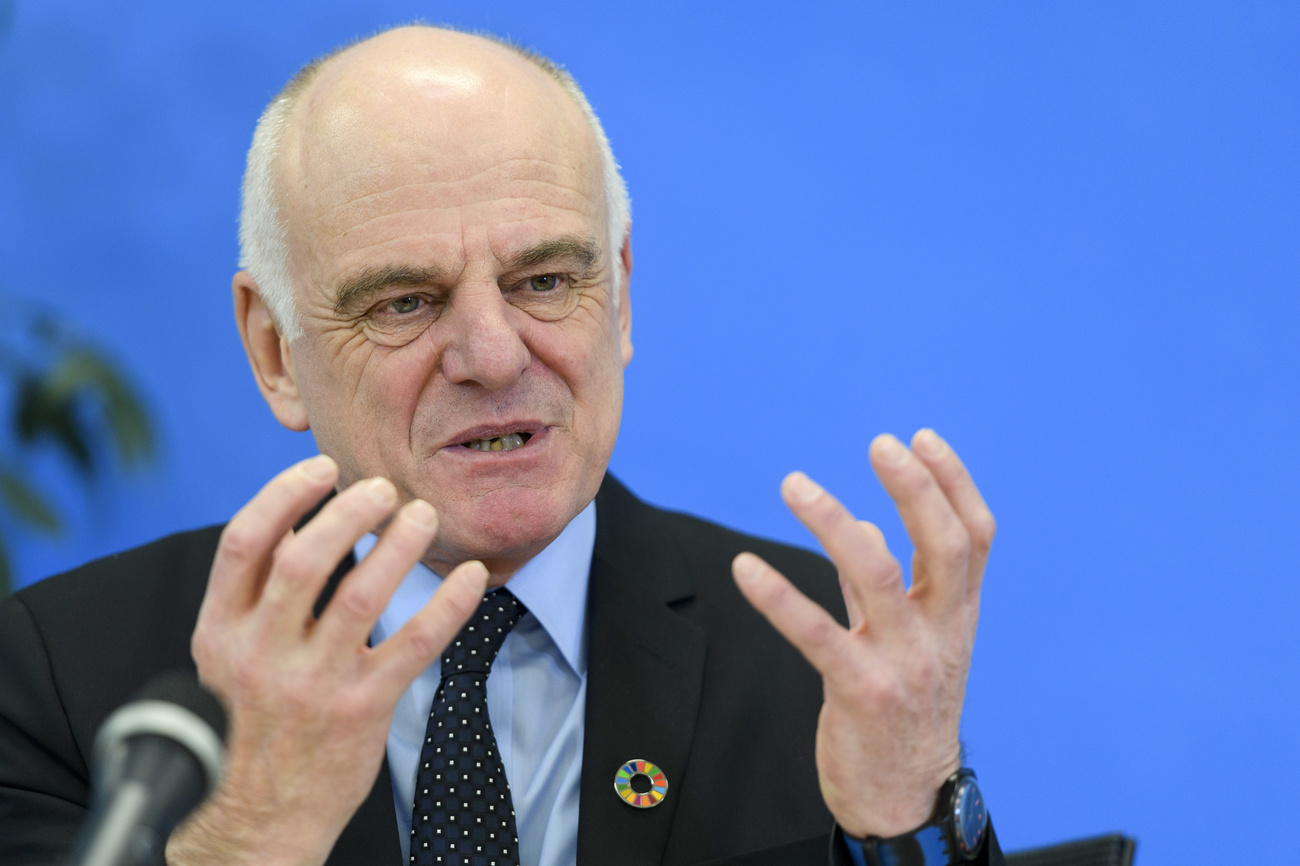
WHO pandemic envoy slams Swiss Covid response

Switzerland’s pandemic strategic has been criticised by a World Health Organisation (WHO) expert who has witnessed a lack of support for some people infected by Covid-19 in the country.
David Nabarro, special envoy to the WHO Director-General on Covid-19External link, says a “half-hearted” Europe as a whole is far behind Asia in controlling the spread of the pandemic. In an interview with the CH Media groupExternal link, Nabarro, who works out of Geneva, said Switzerland is among the countries that relaxed too soon and failed to adequately prepare for a second wave.
Nabarro cites a Swiss friend who struggled to get treatment when he fell seriously ill with the virus. The problem lies with inadequate support structures in local communities, which can better give people vital information, monitor the population and act quickly if outbreaks occur, he said.
This network should include churches, schools, local companies, sports and social groups.
“The reaction in Europe was insufficient,” Nabarro said. “There was a failure to build the necessary infrastructure in the summer months after getting the first wave under control. And now there is a second wave. If the necessary infrastructure is not built now, there will be a third wave, early next year.”
“Switzerland has such high case numbers, especially French-speaking Switzerland, that a much more robust strategy is needed from the authorities, together with residents.”
Another difference he has observed between Europe and Asia is that Asian citizens are better at complying with the distancing, mask-wearing and hygiene measures that are needed to keep the virus under control.
Nabarro dismissed suggestions that this might lead to heightened surveillance of citizens or that policy has to choose between health and the economy.
“The challenge for many Western European countries is to get the virus under control again without having to resort to a lockdown. Because it is an extremely crude instrument. You pay a high price for it. Lockdowns are the last resort, a sign of failure.”

More
Coronavirus: the situation in Switzerland

In compliance with the JTI standards
More: SWI swissinfo.ch certified by the Journalism Trust Initiative



























You can find an overview of ongoing debates with our journalists here . Please join us!
If you want to start a conversation about a topic raised in this article or want to report factual errors, email us at english@swissinfo.ch.